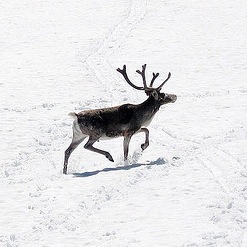December 24, 2013 — Policy makers designing strategies to protect biodiversity and ecosystems would do well to tap the wisdom of indigenous peoples, say advisors to a new international forum.
Representatives of the 115 nations comprising the United Nations’ Intergovernmental Platform on Biodiversity and Ecosystem Services met in Antalya, Turkey, earlier this month to formulate an action plan to protect biodiversity and the benefits it offers. Among the topics addressed: Bridging the gap between science and traditional knowledge.
At the meeting, the IPBES considered recommendations from a panel of experts from around the world on how and why indigenous knowledge should inform its future work. IPBES offers a number of examples of areas in which resource managers can benefit from such knowledge, including management of reindeer and other herd animals in the Arctic; rice-fish co-culture, developed more than 1,200 years ago in China; indigenous fire management, found in Asia and South America; promotion of plant diversity in agriculture; rotational farming as practiced in Tanzania and Thailand; sustainable fisheries management in Pacific Island communities; and rainwater harvesting practices originating more than 6,000 years ago in India.
Among other things, the expert panel noted that “the term ‘science’ is often used in too narrow a sense, excluding the social and human sciences,” and recommended IPBES replace the word in its deliberations with “knowledge,” which would better encompass indigenous and local perspectives.
“We must identify gaps in knowledge and build capacity for the interface between policy and knowledge — in all its forms,” IPBES founding chair Zakri Abdul Hamid said in a press release. “That means developing a process through which scientific and policy communities recognize, consider and build synergies with indigenous and local knowledge in the conservation and sustainable use of biodiversity and ecosystem services.”
To learn more, see The Contribution of Indigenous and Local Knowledge Systems to IPBES: Building Synergies with Science [PDF].
Photo by Aleksi Aaltonen (Creative Commons | Flickr)
Ensia shares solutions-focused stories free of charge through our online magazine and partner media. That means audiences around the world have ready access to stories that can — and do — help them shape a better future. If you value our work, please show your support today.
Yes, I'll support Ensia!
